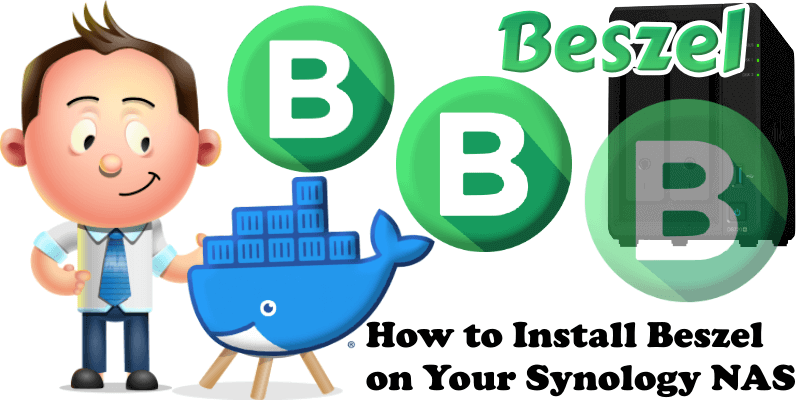
Beszel is a lightweight server resource monitoring hub with historical data, Docker stats, and alerts. Much smaller and less demanding than leading solutions, Beszel will be one of your favorite Docker containers. In this step by step guide I will show you how to install Beszel on your Synology NAS using Docker and Portainer.
STEP 1
Please Support My work by Making a Donation.
STEP 2
Install Portainer using my step by step guide. If you already have Portainer installed on your Synology NAS, skip this STEP. Attention: Make sure you have installed the latest Portainer version.
STEP 3
Go to File Station and open the docker folder. Inside the docker folder, create one new folder and name it beszel. Follow the instructions in the image below.
Note: Be careful to enter only lowercase, not uppercase letters.
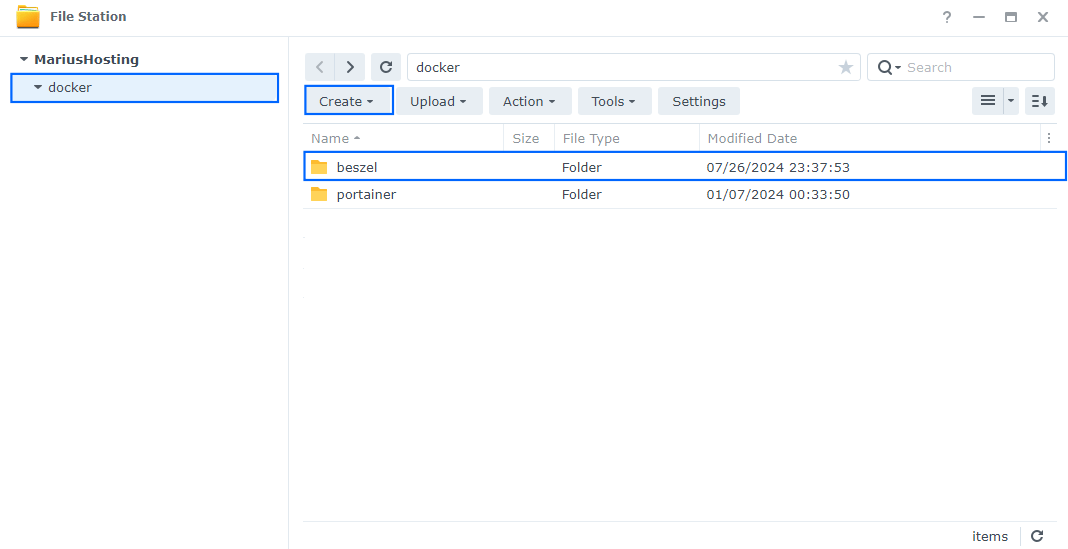
STEP 4
Log into Portainer using your username and password. On the left sidebar in Portainer, click on Home then Live connect. Follow the instructions in the image below.

On the left sidebar in Portainer, click on Stacks then + Add stack. Follow the instructions in the image below.

STEP 5
In the Name field type in beszel. Follow the instructions in the image below.
services:
beszel:
container_name: Beszel
image: henrygd/beszel:latest
volumes:
- /volume1/docker/beszel:/beszel_data:rw
ports:
- 8095:8090
restart: on-failure:5
beszel-agent:
image: henrygd/beszel-agent
container_name: Beszel-Agent
network_mode: host
volumes:
- /var/run/docker.sock:/var/run/docker.sock:ro
environment:
LISTEN: 45876
KEY: #Your_Personal_Key
FILESYSTEM: /dev/sda1
restart: on-failure:5
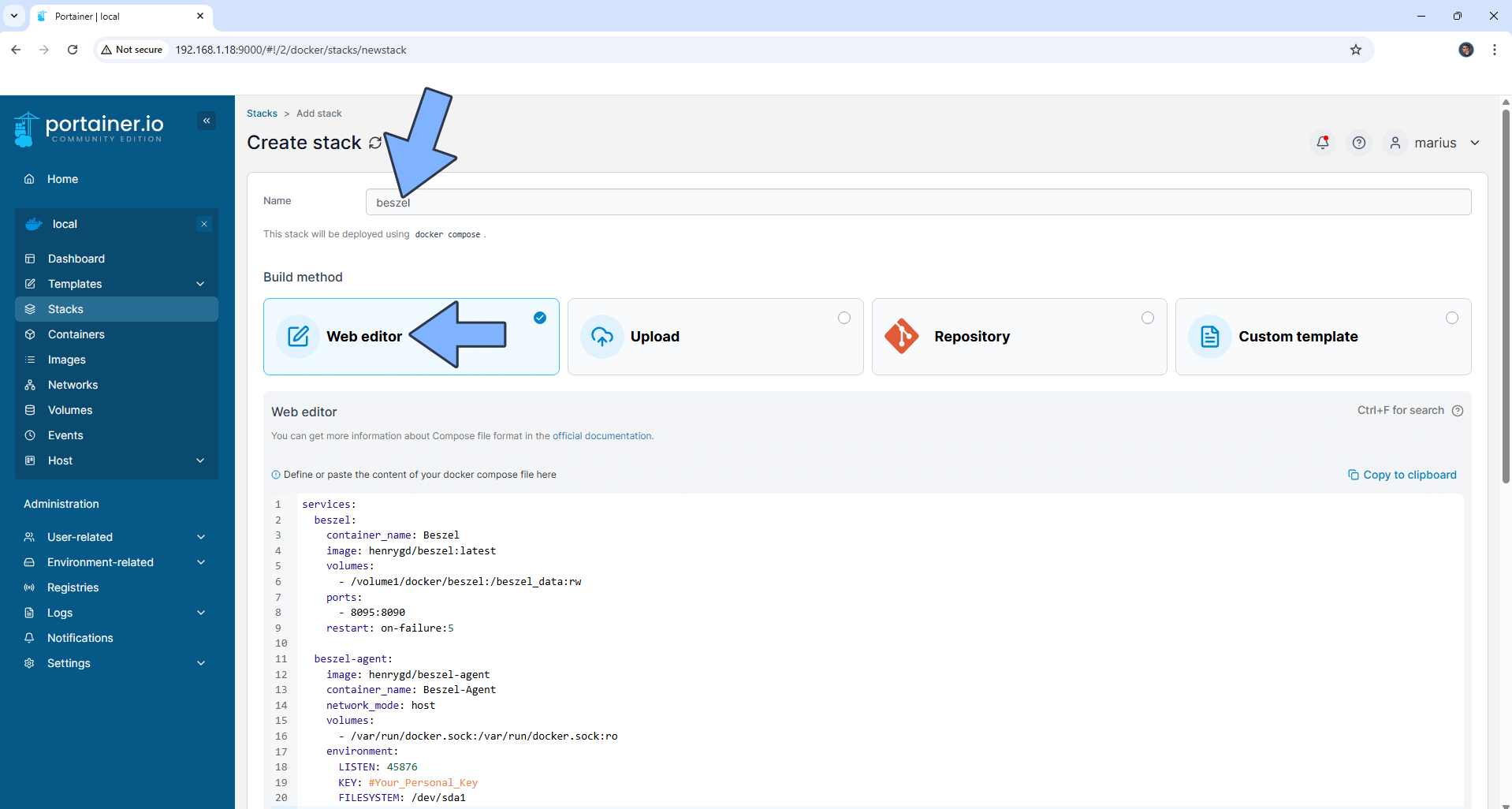
STEP 6
Scroll down on the page until you see a button named Deploy the stack. Click on it. Follow the instructions in the image below. The installation process can take up to a few minutes. It will depend on your Internet speed connection.
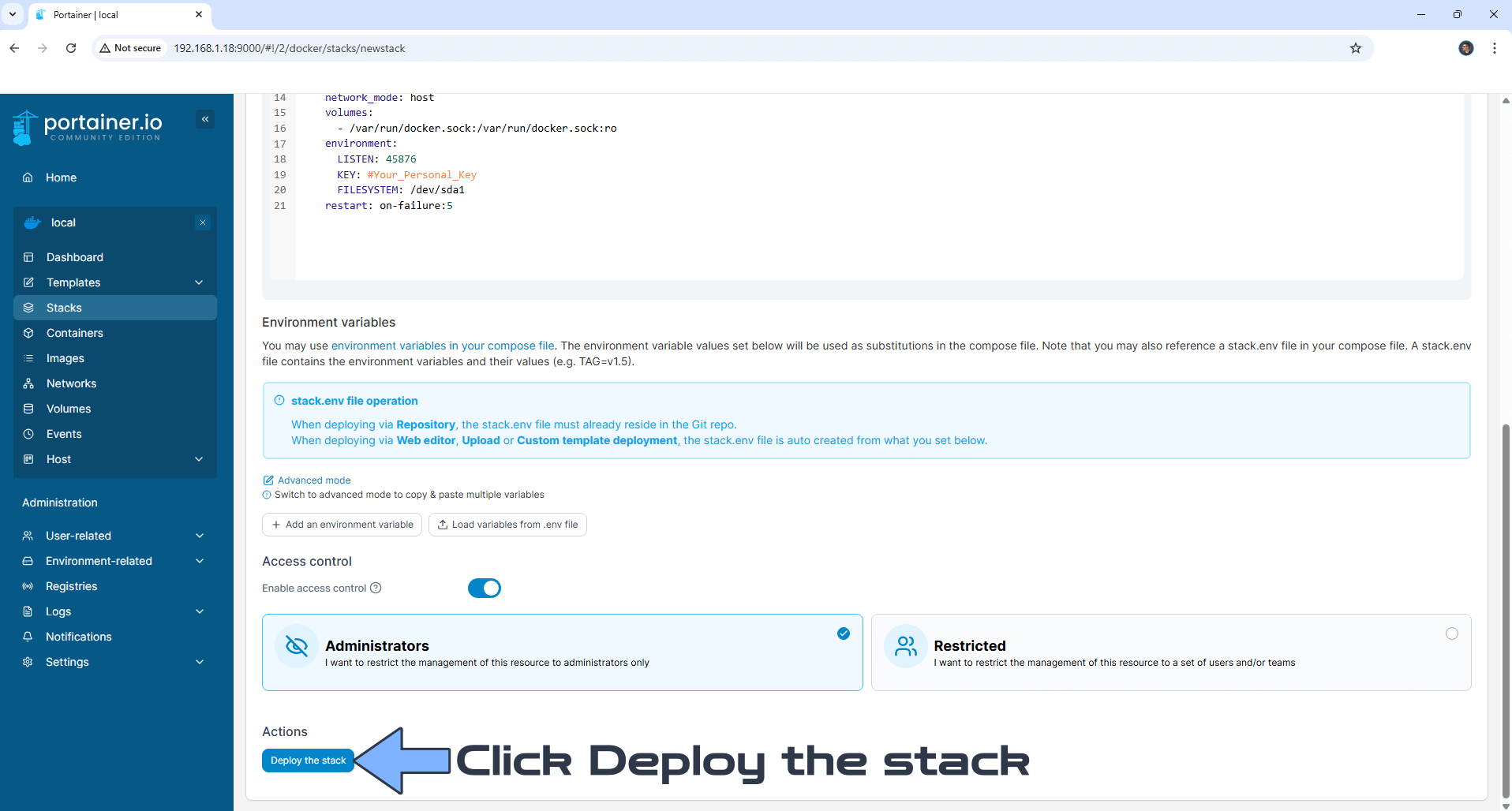
STEP 7
If everything goes right, you will see the following message at the top right of your screen: “Success Stack successfully deployed“. 💡Note: Your Beszel-Agent container will be marked as exited. This is normal behavior for this container at this STEP. Go to the next STEP.

STEP 8
🟢Please Support My work by Making a Donation. Almost 99,9% of the people that install something using my guides forget to support my work, or just ignore STEP 1. I’ve been very honest about this aspect of my work since the beginning: I don’t run any ADS, I don’t require subscriptions, paid or otherwise, I don’t collect IPs, emails, and I don’t have any referral links from Amazon or other merchants. I also don’t have any POP-UPs or COOKIES. I have repeatedly been told over the years how much I have contributed to the community. It’s something I love doing and have been honest about my passion since the beginning. But I also Need The Community to Support me Back to be able to continue doing this work.
STEP 9
The installation process can take up to a few seconds/minutes. It will depend on your Internet speed connection. Now open your browser and type in http://Synology-ip-address:8095 Create your administrator account. Type in your own Email Address and Password. Click Create account. Follow the instructions in the image below.
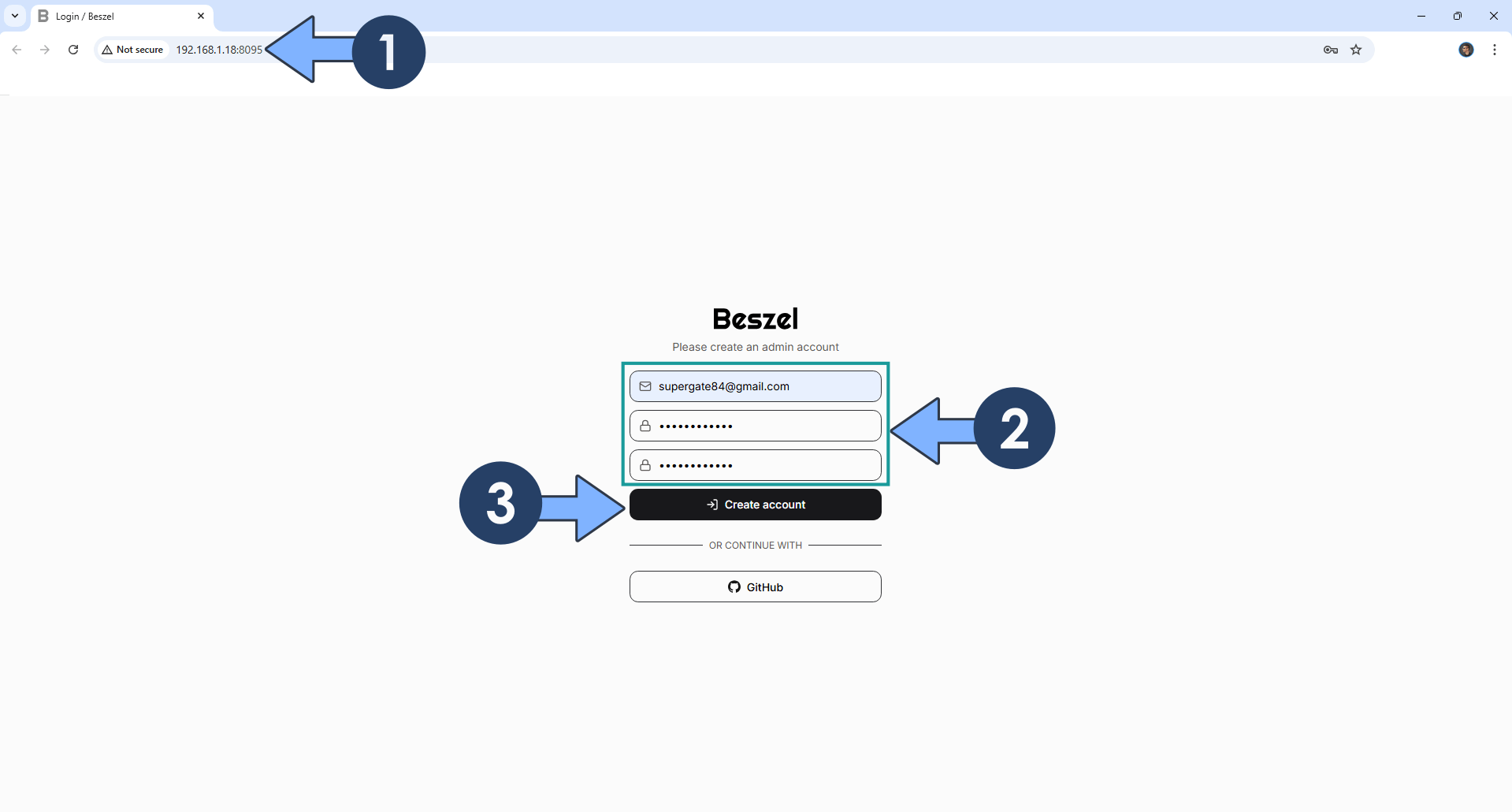
STEP 10
Change the theme to Dark mode. Click Add System. A new window will open. Type in the Name of your NAS. Type in your Local NAS IP, then click the copy icon to copy the Public Key. Follow the instructions in the image below.
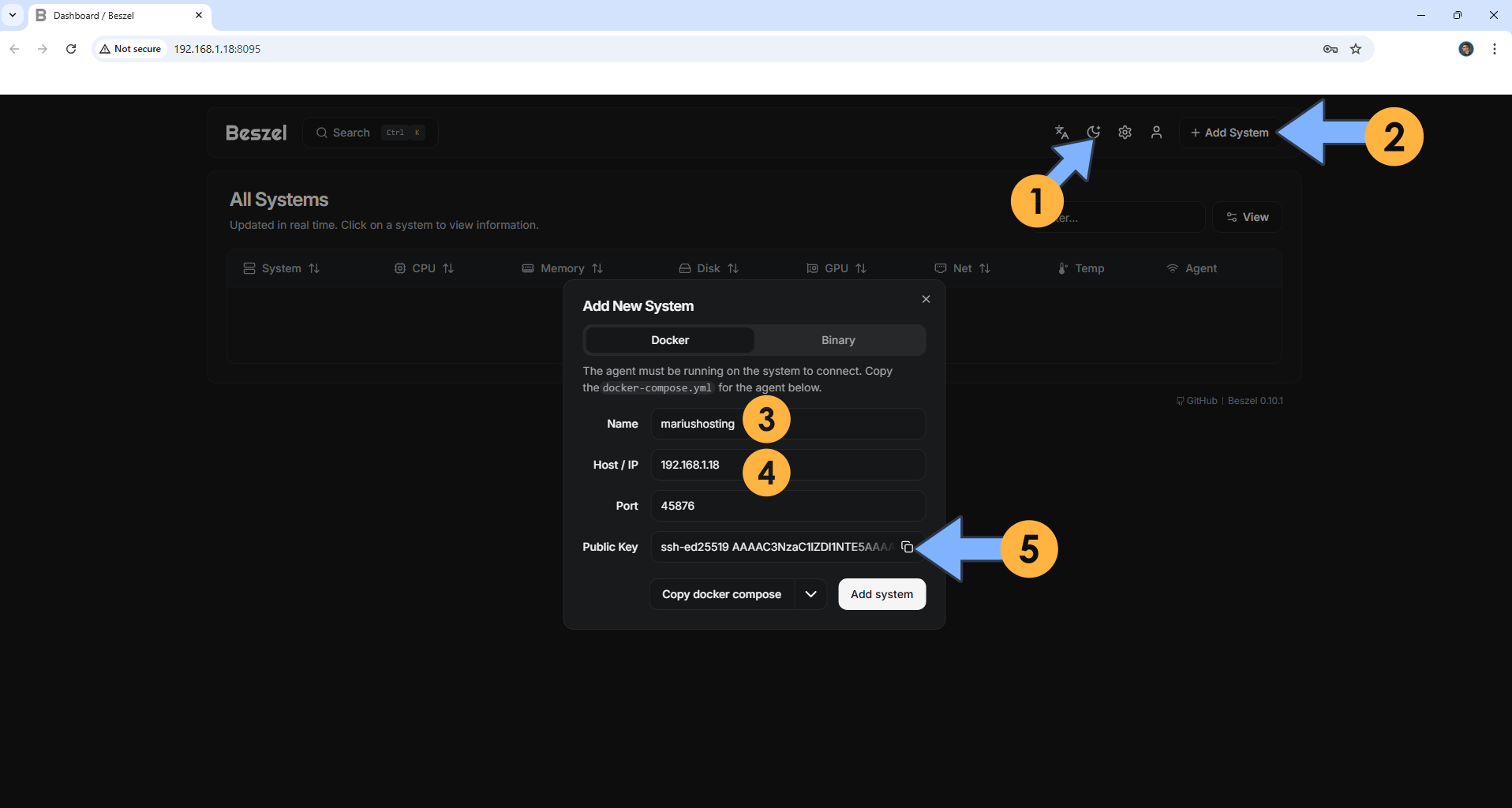
STEP 11
After you click the copy icon at STEP 10, a new pop up window will open. Copy this Secret Key using CTRL+C on your keyboard, then click OK. Note: You will need this KEY later at STEP 15. Follow the instructions in the image below.
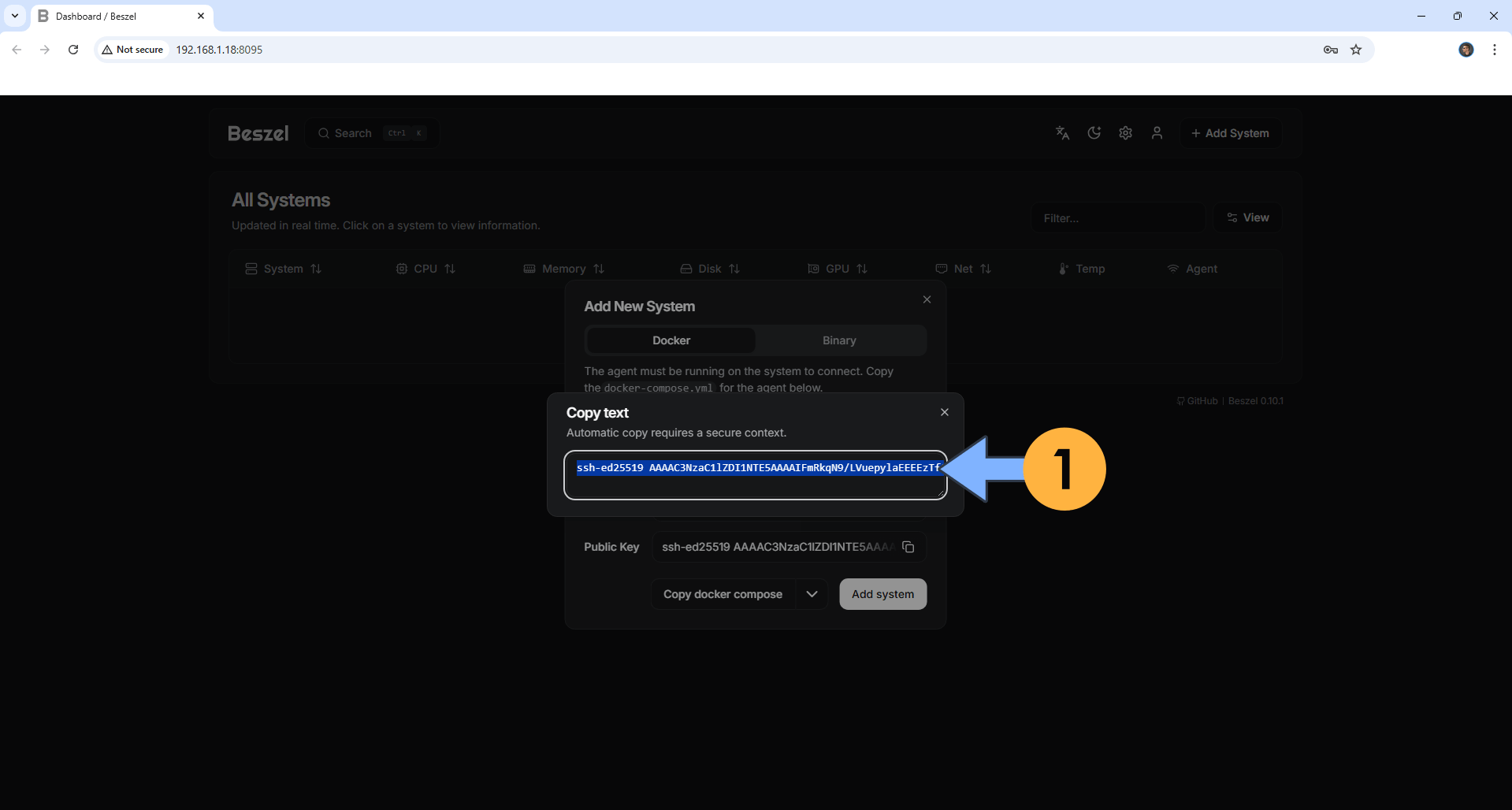
STEP 12
Click Add system. Follow the instructions in the image below.
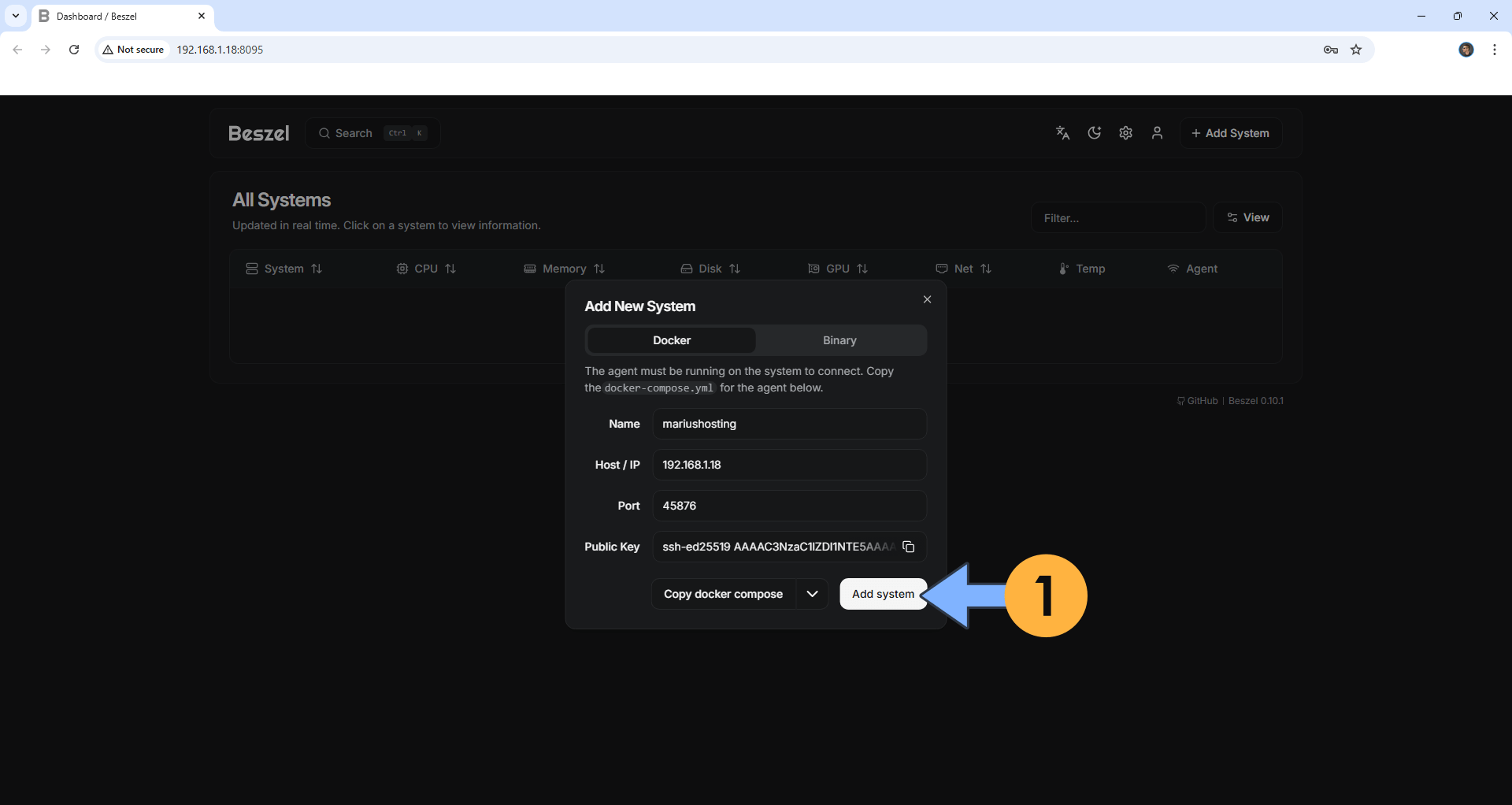
STEP 13
Your Beszel dashboard will look like this.
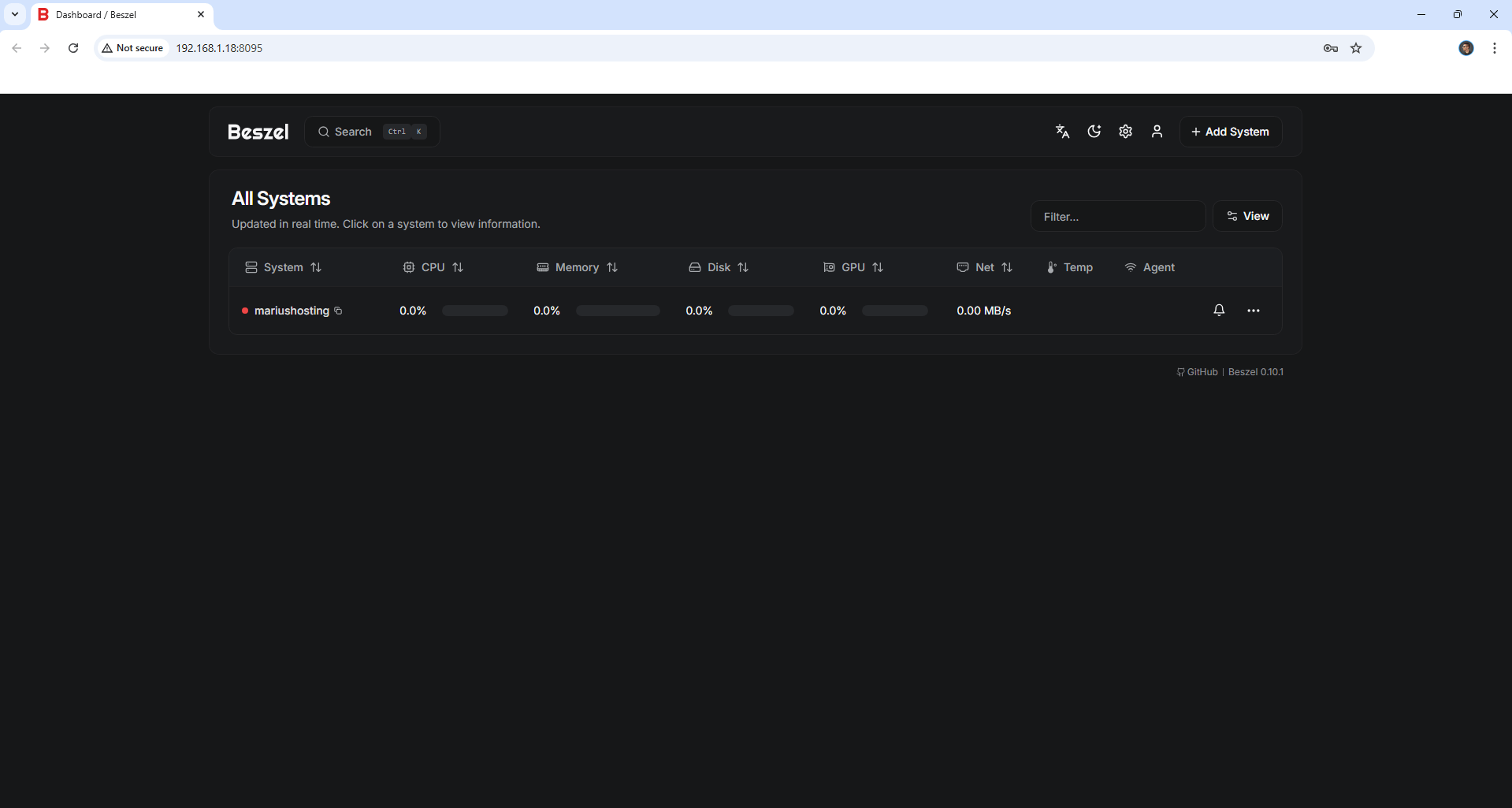
STEP 14
Open Portainer. On the left sidebar, click Stacks, then beszel. Follow the instructions in the image below.
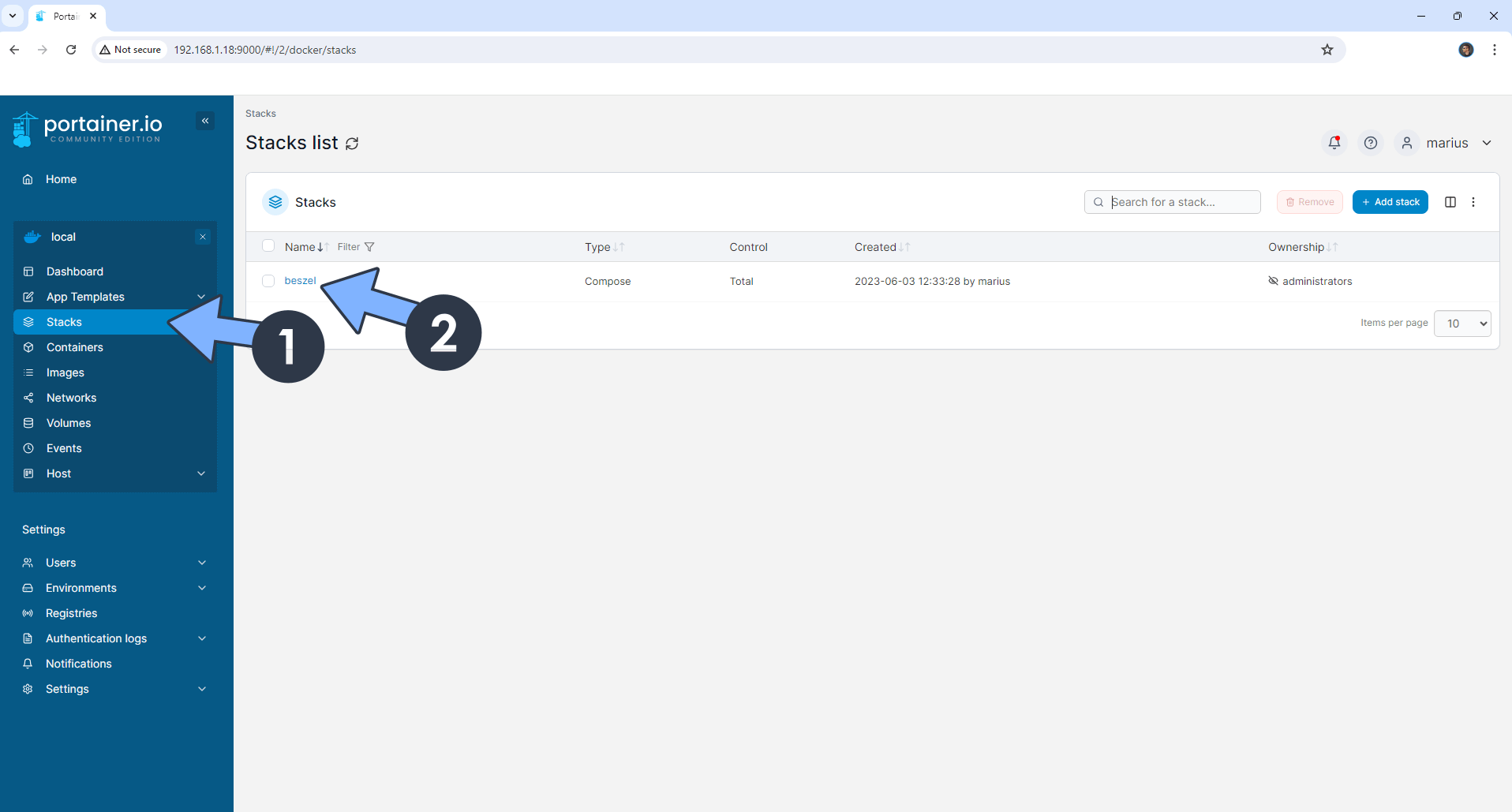
STEP 15
Click the Editor tab, then paste your own KEY that you have previously copied at STEP 11. Click Update the stack. Follow the instructions in the image below.
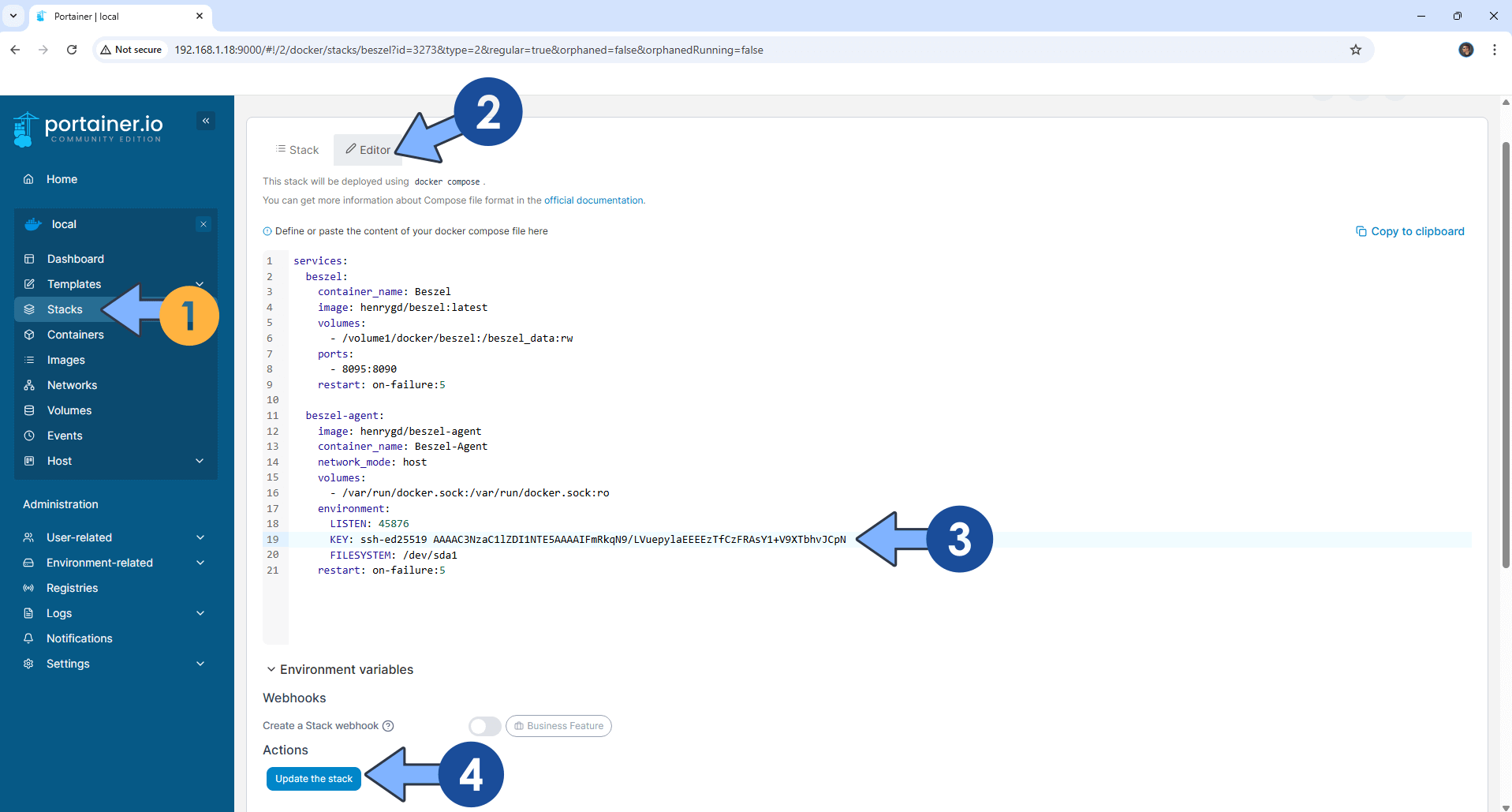
STEP 16
Click Update. Follow the instructions in the image below.
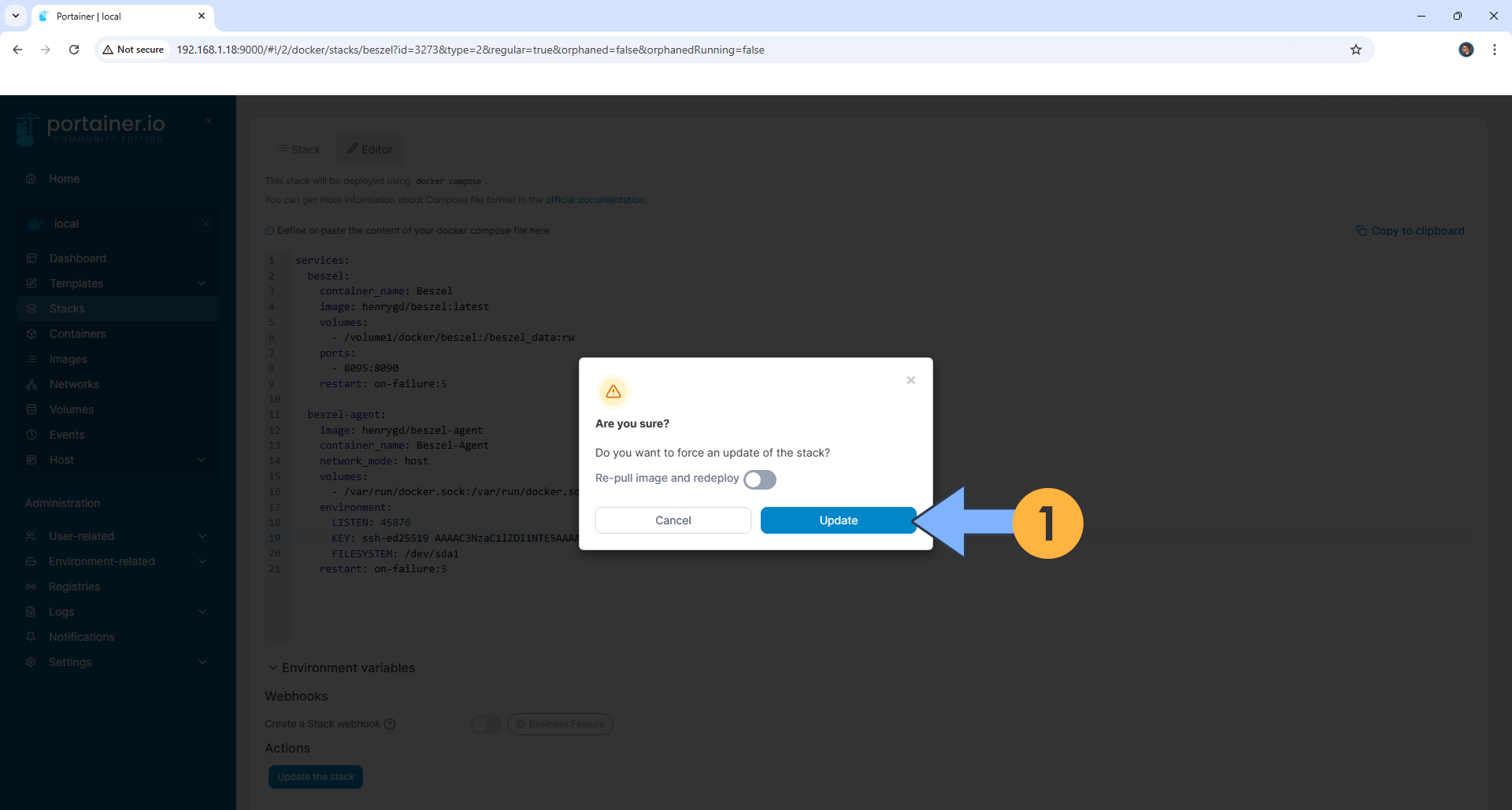
STEP 17
Now open your browser and type in http://Synology-ip-address:8095 Click on your System. Your red dot will be green in a couple of minutes. Follow the instructions in the image below.
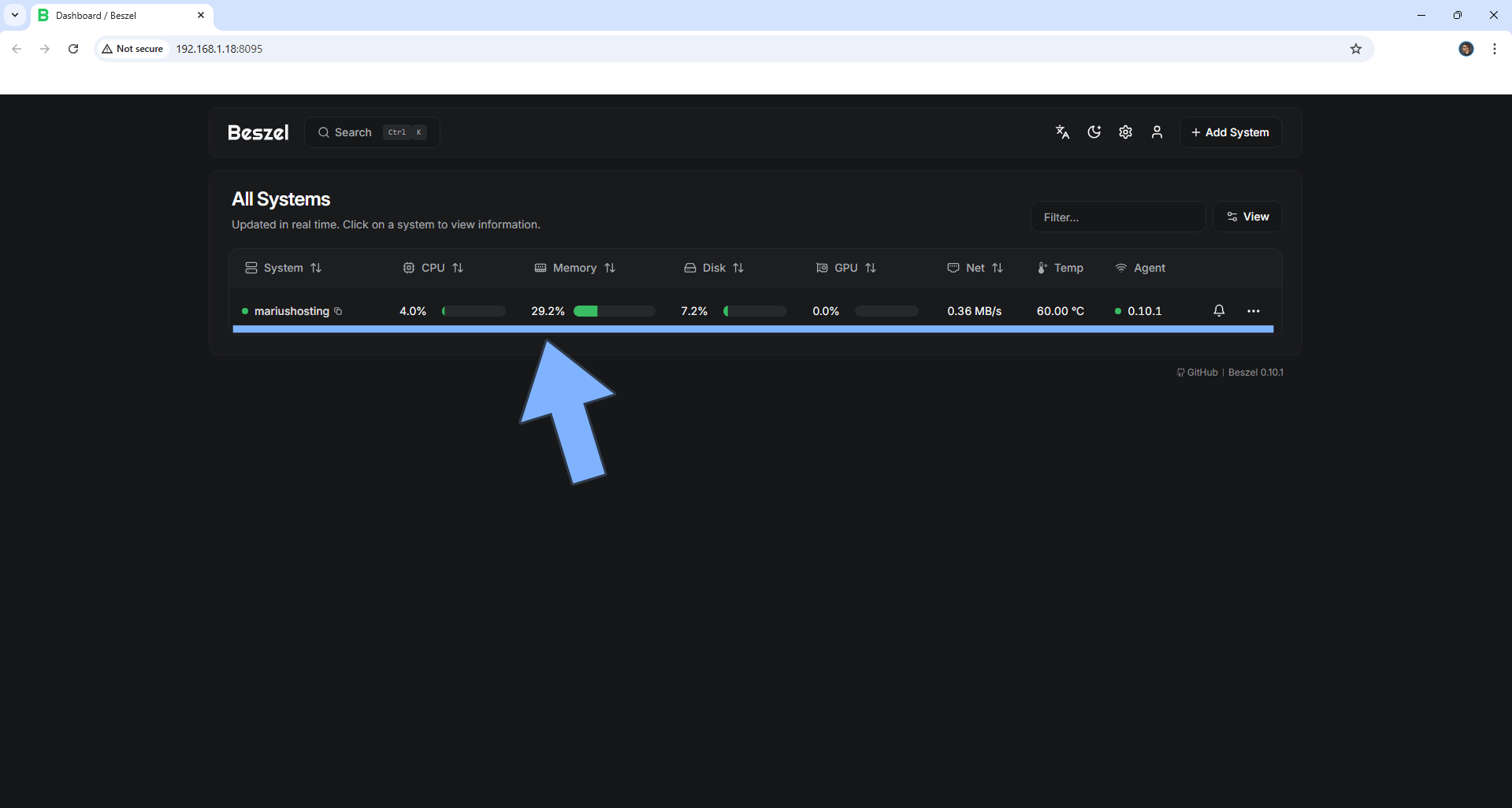
STEP 18
Your Beszel Dashboard monitoring at a glance!
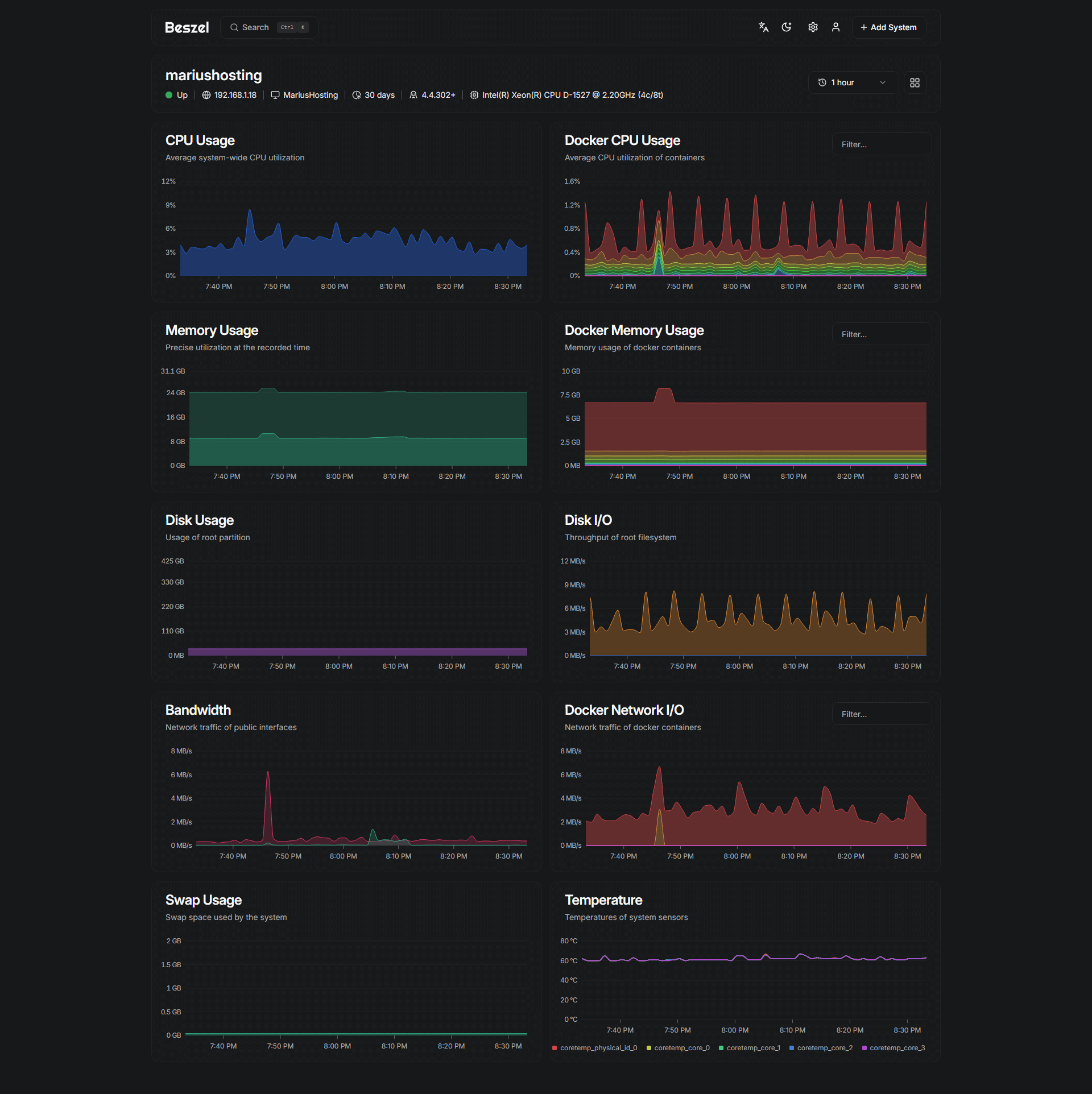
Enjoy Beszel!
If you encounter issues by using this container, make sure to check out the Common Docker issues article.
Note: If you want to run the Beszel container over HTTPS, check How to Run Docker Containers Over HTTPS. In order to make Beszel work via HTTPS, it’s mandatory to activate WebSocket.
Note: Can I run Docker on my Synology NAS? See the supported models.
Note: How to Back Up Docker Containers on your Synology NAS.
Note: Find out how to update the Beszel container with the latest image.
Note: How to Free Disk Space on Your NAS if You Run Docker.
Note: How to Schedule Start & Stop For Docker Containers.
Note: How to Activate Email Notifications.
Note: How to Add Access Control Profile on Your NAS.
Note: How to Change Docker Containers Restart Policy.
Note: How to Use Docker Containers With VPN.
Note: Convert Docker Run Into Docker Compose.
Note: How to Clean Docker.
Note: How to Clean Docker Automatically.
Note: Best Practices When Using Docker and DDNS.
Note: Some Docker Containers Need WebSocket.
Note: Find out the Best NAS Models For Docker.
Note: Activate Gmail SMTP For Docker Containers.
This post was updated on Friday / January 16th, 2026 at 9:38 AM
